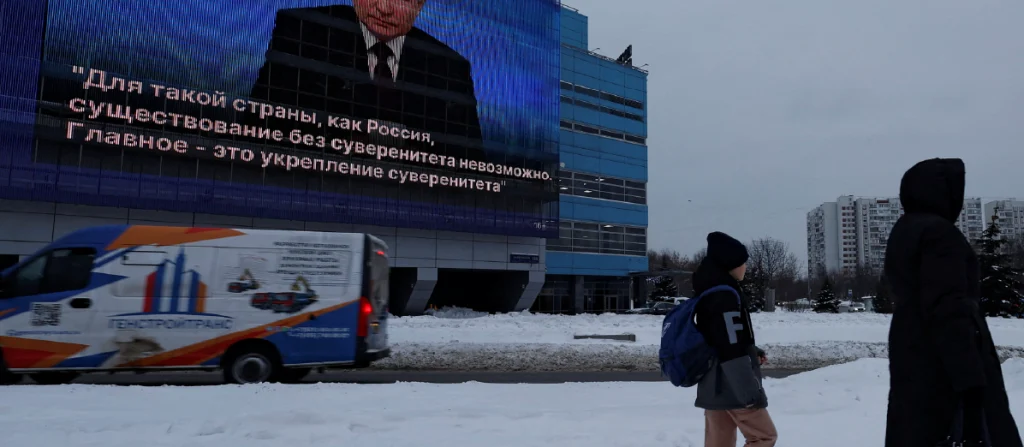Listen to the article
Russian Disinformation Campaigns: Sophisticated Networks Reshaping Global Politics
Russian disinformation operations have emerged as a powerful force reshaping public opinion and geopolitical dynamics across multiple countries, according to recent analysis of their methods and impacts. These sophisticated campaigns exploit societal vulnerabilities through tailored narratives, creating significant shifts in public sentiment toward Western institutions.
In Georgia, Russian narratives have successfully steered segments of the population away from European integration, fostering skepticism toward EU and NATO membership. Similar efforts have undermined international support for Ukraine by spreading false narratives about the conflict, portraying Ukraine as a failed state or aggressor, and sowing doubts about Western involvement.
These campaigns operate as a well-coordinated ecosystem deploying diverse narratives across multiple platforms. The “Russian World” (Russkiy Mir) narrative solidifies identification with Russia among Russian-speaking populations in countries like Latvia, Estonia, and Ukraine. Meanwhile, the “Slavic Unity” narrative leverages shared ethnic and historical ties to bolster support for Russia’s geopolitical agenda.
“These narratives are strategically designed to evolve in intensity and variation, targeting the unique characteristics of each media environment and society they infiltrate,” notes the analysis, which identified countries with complex media landscapes as particularly vulnerable.
The infrastructure supporting these campaigns is both extensive and interconnected. State-controlled media work alongside private actors, the Russian Orthodox Church, and digital platforms like Telegram to amplify pro-Kremlin messaging. Financial backing comes from state-linked entities, with cryptocurrencies increasingly used to obscure funding sources.
The Russian Orthodox Church plays a particularly insidious role through affiliated organizations like the Russian Association of Centers for the Study of Religions and Sects (RACIRS). Under the guise of anti-cult activities, these groups marginalize minority religious communities while promoting Russian imperialist ideologies across Central and Eastern Europe.
Case studies in Slovakia and the Czech Republic illustrate the export of Russian disinformation beyond Ukraine’s borders. Since 2014, pro-Russian narratives have infiltrated Slovakia’s information ecosystem through embassies, intelligence operatives, and social media, positioning Russia as a protector of traditional values and a natural ally for Slavic nations.
This influence has bolstered support for pro-Kremlin political movements like SMER-SD, led by Robert Fico, whose rhetoric undermines Ukraine’s sovereignty and aligns with Moscow’s interests. In the Czech Republic, media outlets linked to Ukrainian oligarch Viktor Medvedchuk’s network have disseminated narratives opposing EU policies while covertly funding pro-Russian candidates.
Medvedchuk’s case demonstrates the Kremlin’s strategy of leveraging influential figures to spread propaganda. His control of Ukrainian TV channels allowed him to saturate the media landscape with anti-Western narratives, particularly in regions where pro-Russian sentiment was already present. His operations were financed through Russian oil profits and employed social media troll factories to amplify messaging.
Experts emphasize that targeting the financial and logistical lifelines of these networks is critical to countering their impact. “Cutting off funding sources, whether through sanctions or stricter regulations on the flow of dark money, cryptocurrencies, or other opaque financial channels, can neutralize even well-entrenched propaganda operations,” the analysis states.
Additional approaches include regulating digital platforms like Telegram and Yandex, which play crucial roles in coordinating campaigns and prioritizing Kremlin-aligned content. The Czech Republic has shown resilience through proactive measures, including government sanctions and public awareness campaigns, demonstrating the effectiveness of coordinated counter-disinformation strategies.
Public education initiatives and media literacy programs are also vital components in empowering citizens to resist manipulation. By implementing comprehensive strategies addressing both monetary and operational aspects, democracies can significantly weaken the infrastructure enabling these sustained disinformation efforts.
As these campaigns continue to evolve in sophistication, the international community faces an ongoing challenge to protect democratic institutions, rebuild public trust, and safeguard electoral processes from external manipulation.
Fact Checker
Verify the accuracy of this article using The Disinformation Commission analysis and real-time sources.



